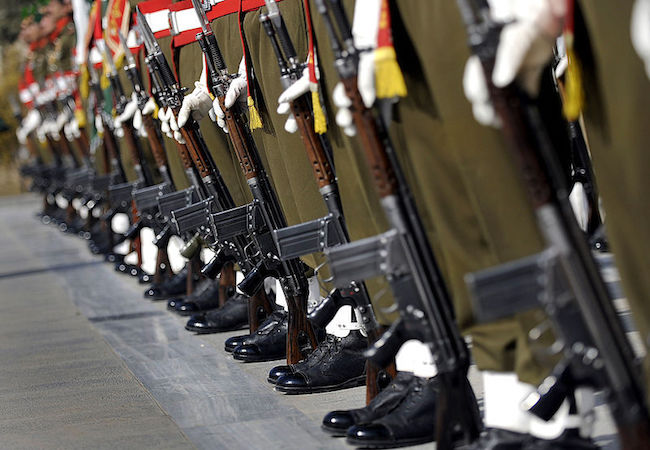
By Beenish Altaf
The month of September has a unique importance in the history of Pakistan. It is so because of the armed forces of Pakistan who have given befitting reply to the Indian armed forces during the 1965 war and forced them to draw back. Therefore, the defense day of Pakistan is celebrated in commemorating the memories of Pakistani brave soldiers who laid their lives protecting our homeland in the 1965 War against India.
The Chief Minister Punjab said on the 52th anniversary of the defence day that besides continuous monitoring of naval, aerial and physical boundaries, the armed forces have also played unforgettable role against terrorism and the unique solidarity shown by the political and military leadership for the total elimination of terrorism is a bright chapter in the national history. This unique example of national unity has realized the enemies of Pakistan that this nation is fully united to effectively counter any threat to national security and survival.
Basically it was the disputed state of Kashmir that became the flashpoint in 1965, and led to the Indo-Pakistan war later in the same year. Border skirmishes started in April, spiraled into a war as the Indian Forces crossed the international border and advanced towards Lahore. On September 6, 1965, Indian army crossed the international borders of Pakistan without a formal declaration of War. It was a time when the whole nation was cast into the mould of a cohesive unit to defend our home land and defeated the Indian Army and made them retrieve on all fronts.
Indians forces then, crossed the international border of West Pakistan without a formal declaration of war, and launched a three-pronged offensive against Lahore, Sialkot and Rajasthan. There was a fierce tank battle on the plains of Punjab. That was the moment when the domestic India Pakistan conflict transformed into an international conflict and raised called the external power’s concerns.
‘The seventeen-day war witnessed the largest tank battles since World War II, causing thousands of casualties to both sides, but remained militarily inconclusive. Pakistan withstood the invasion of its territory by an enemy four times its size, and in doing so the whole nation stood up to the challenge with an iron resolve.’ Well, the US suspended military supplies to both sides during the Indo-Pak War. Both the Soviet Union and the United States took a united stand to curtail the conflict within the boundaries of the Sub-continent from escalating into a global conflict. China threatened to intervene and offered military support to Pakistan. It was to keep China away from this conflict that both the Soviet Union and the United States pressured the UN to arrange for an immediate ceasefire. The main diplomatic effort to stop the fighting was conducted under the backing of the United Nations and a ceasefire came into effect on September 23, 1965.
However, Pakistan’s forces were strategic sound enough and became a concrete wall before the enemy during the confrontation and gave a befitting reply to enemy’s aggression. The political as well as the military leadership is fully aware of the conspiracy and tactic of the enemy and the security and solidarity of the country will be protected at every cost along with ensuring elevation of national honor and prestige.
Pragmatically, Pakistan kept facing new threats and challenges, in the face of terrorism, criminal acts or other strategic threats from outside country, all fueled by other states having stakes in the instability of the country. Even the Kashmir issue remained a constant bone of contention between the two countries. Till the Kashmiri people are granted their inalienable right to self-determination, thereby removing the core cause of conflict, durable peace will continue to elude South Asia.




